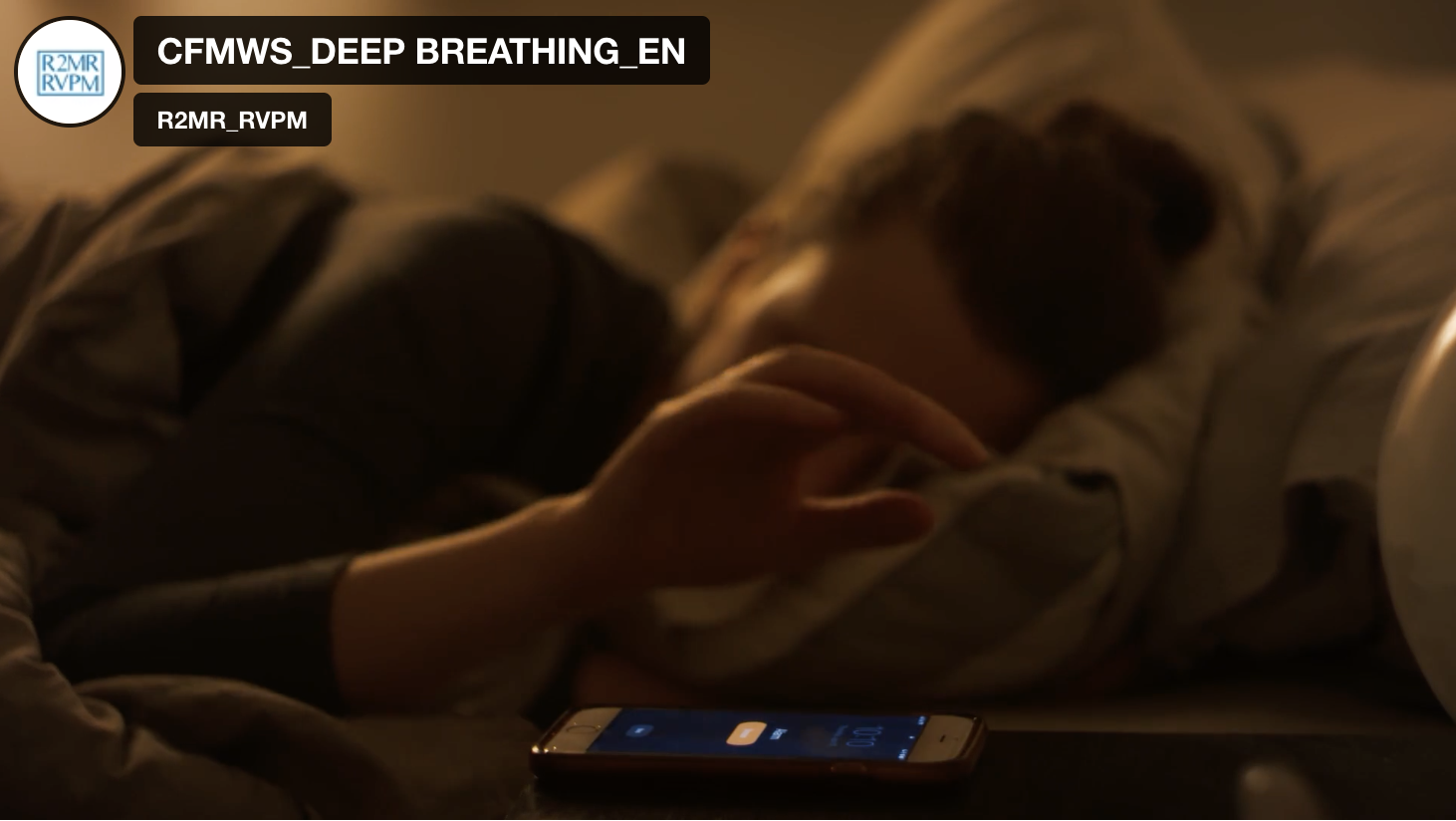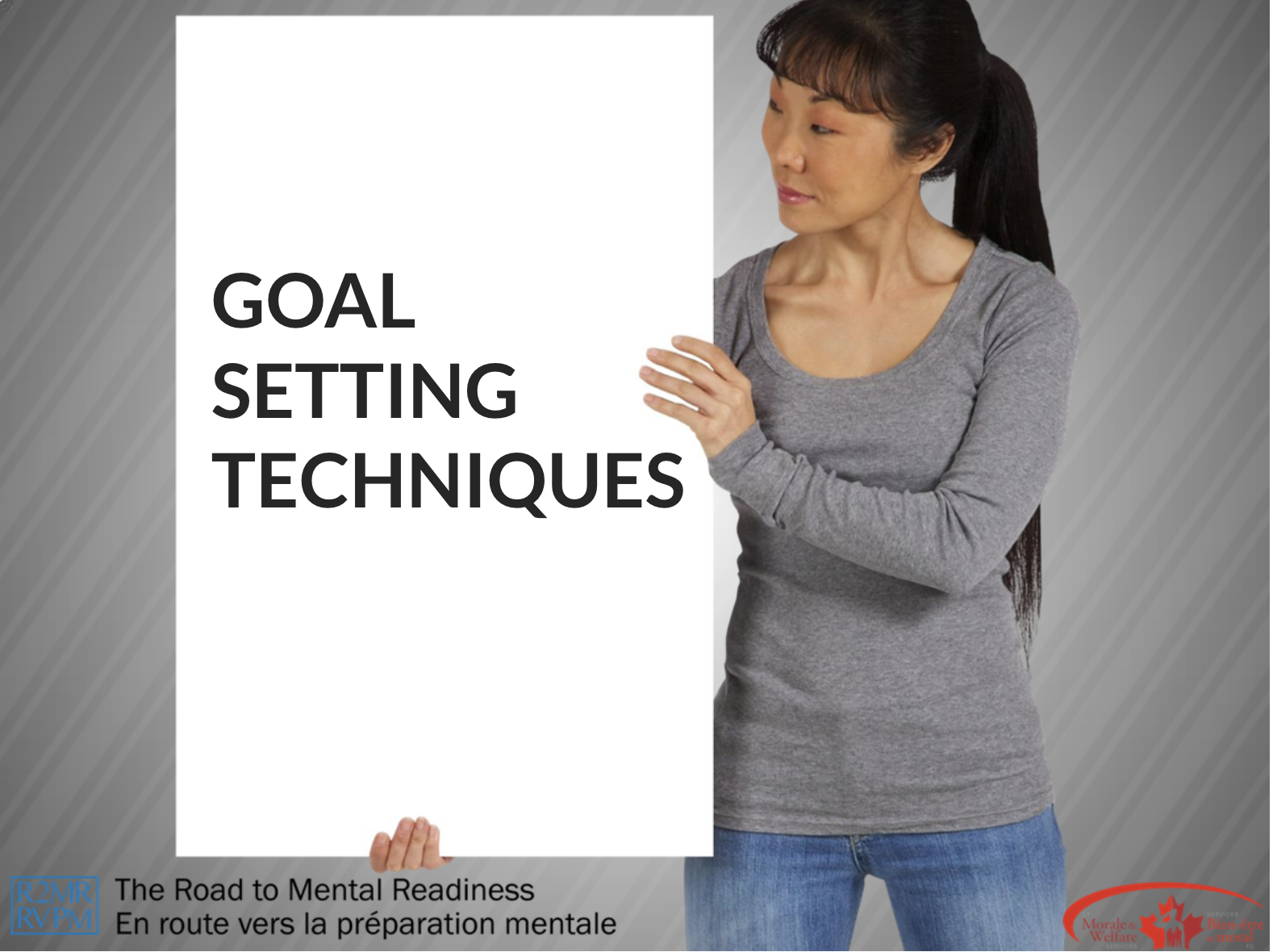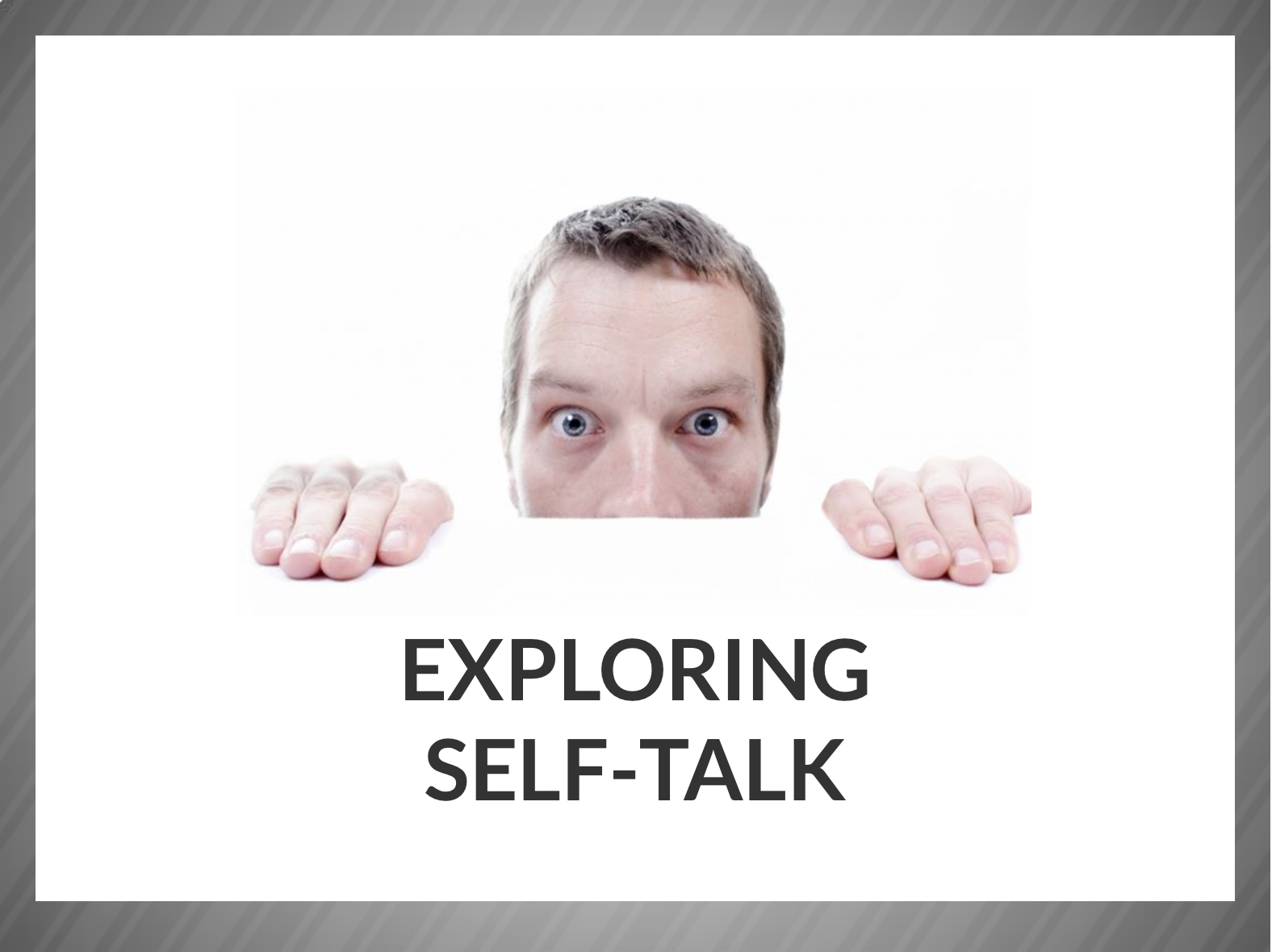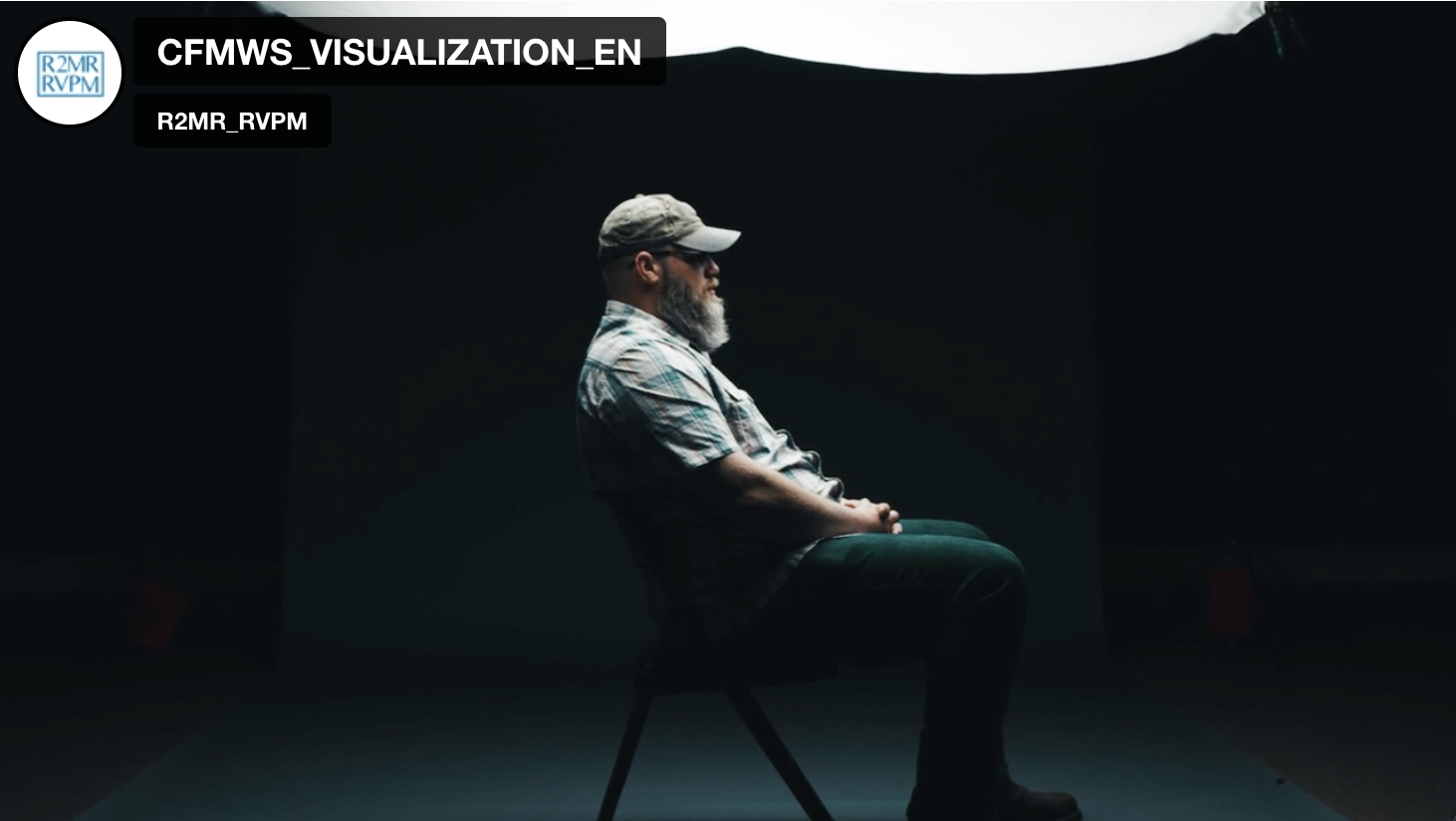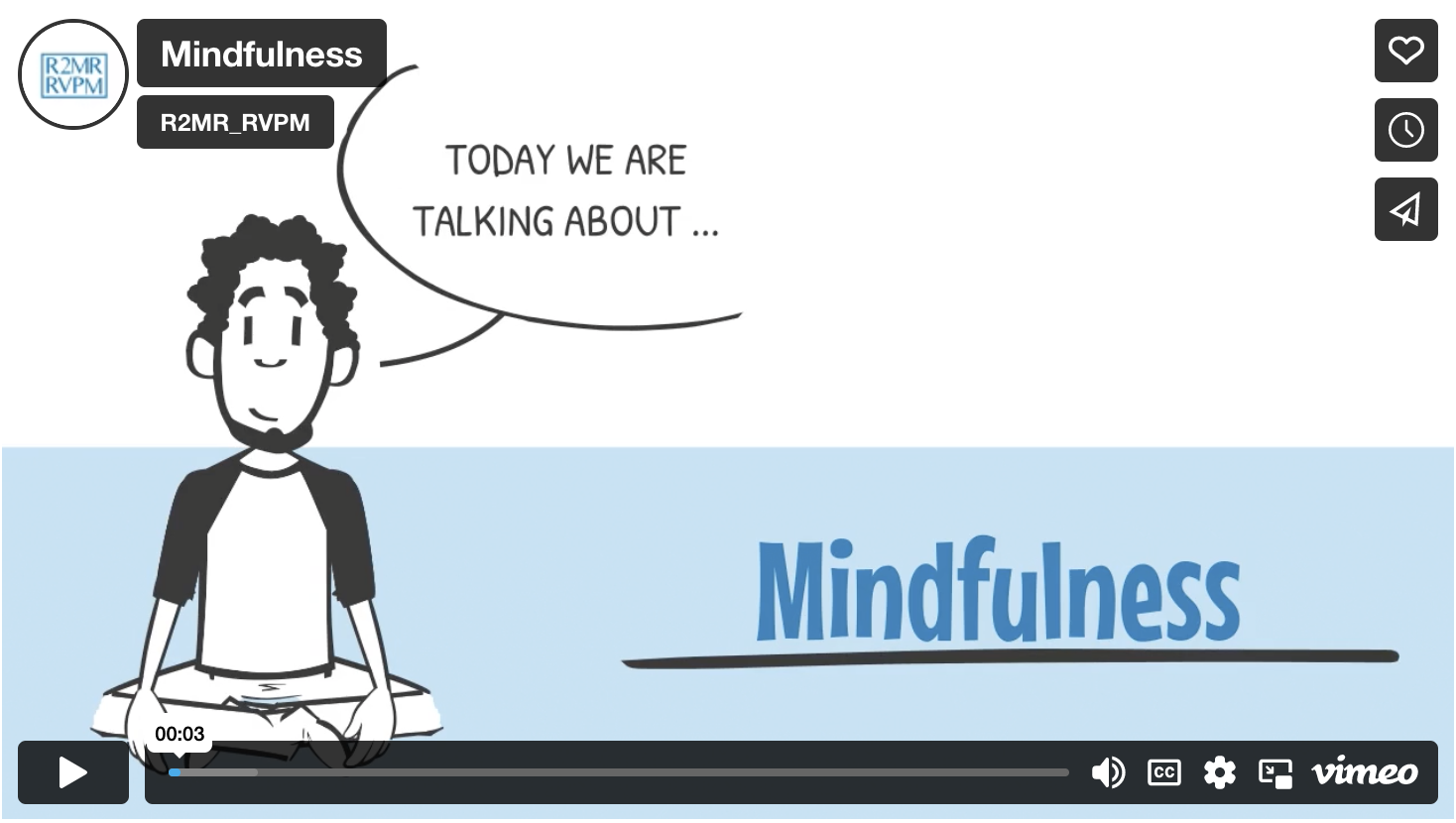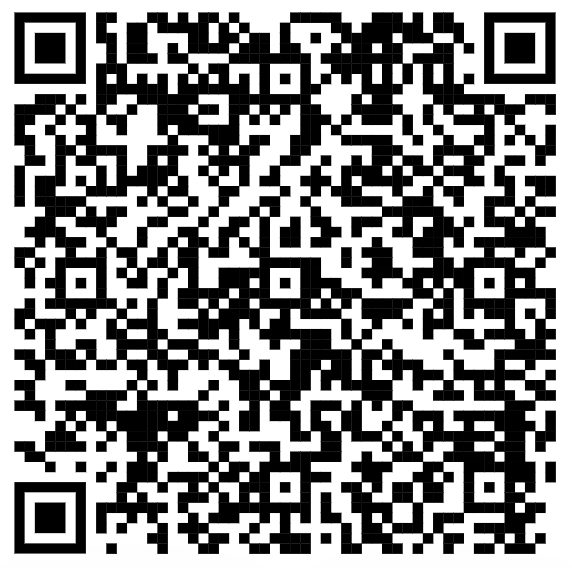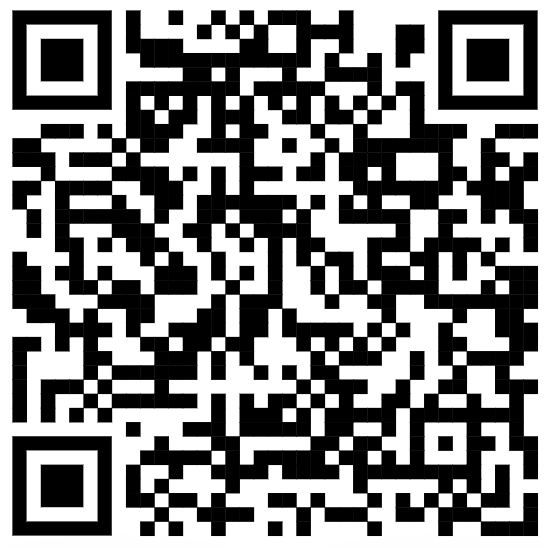The Big Four +
The process of building resilience* is influenced by our individual and personal experiences. Certain tools or strategies may work well for one person, while other tools or strategies may work well for someone else. Learning what works well for you and enhancing your “toolbox” is what matters.
The Big Four + is R2MR’s “toolbox” of resilience skills. Regularly practicing each of these skills can help you build your resilience. Click on each of the tools to learn more about what they are, how they work, and even try them out for yourself.
Deep Breathing
Deep breathing* is a specific technique that, when learned, applied properly and practiced, is one of the fastest and most effective means of regaining control over the body’s stress response system. Engaging in deep breathing in moments of stress delivers oxygen to the brain and enacts the body’s relaxation response. This results in immediate physiological changes, relaxing the central nervous system and calming the body and mind.
When done properly and practiced regularly, deep breathing can contribute to reduced stress levels and improved overall well-being.
Watch this video to learn more about this important skill.
Goal Setting
Goal setting * is the process of mapping out a plan to tackle large or overwhelming tasks, breaking them into more manageable steps. Goal setting can reduce stress levels, improve performance and help manage setbacks and obstacles. Learn two key strategies, SMART and WIN, that you can use to enhance your goal setting skills.
Looking to set a SMART goal? Click on the link at the bottom of the page and download the R2MR App to your device. You can practice this skill by selecting Goal Setting.
Exploring Self-Talk
Self-talk * is the ongoing chatter that occurs in our heads. However, our thoughts are not always true or helpful! Left unchecked, negative messages can cause increased stress and anxiety as well as impact our overall health and well-being. Click on the e-learning below to learn more about how you can adapt unhelpful thoughts and use positive self-talk to help you manage and recover from stressful situations. Adaptive and positive self-talk is a key strategy for developing resilience.
Are you looking to challenge some unhelpful thinking? Click on the link at the bottom of the page and download the R2MR app to your smart device. You can use this interactive app to walk through and reframe your own thinking.
Visualization
Visualization *, also referred to as imagery or mental rehearsal, is a very versatile skill. It can help us prepare for challenging situations, mentally rehearse effective responses and solutions, and help us relax and recover from stress.
Watch this video to learn more about practical ways you can use this technique to manage stress and confront obstacles.
Practice this skill by clicking on the audio below:
Public speaking visualization
Relaxation visualization
Mindfulness
Mindfulness* refers to the awareness that comes by focusing on the present, paying attention to changes that occur on a moment-to-moment basis (both within yourself and your environment), and processing your experience without getting distracted by your own reactions, thoughts or emotions. Using mindfulness regularly has been found to reduce stress and improve overall health and well-being.
Remember that what is most important about mindfulness practice is learning to bring your attention back to your present moment experience when your mind wanders. You can practice mindfulness on your own at any time. There are numerous online programs available to help you practice mindfulness. Below are just a few options. Each of these resources offers a different appeal. Look for a resource that appeals to you.
10% Happier
Program based on NY Times bestselling book; daily videos and meditations; range of content built for skeptics; app based (English only). Free trial.
Buddhify
Guided meditations for the busy lifestyle; content ranges from traditional formal meditations to “on-the-go” meditations; app based (English only). Membership is 30$ per year.
Calm
Free trial; many programs (e.g., sleep, reduce stress, develop gratitude); 2, 10, or 20 minute sessions; app or web-based
Headspace
Free 10-day trial; many programs (e.g., sleep, stress, mindfulness for work, mindfulness for kids,); app or web-based
Insight Timer
Over 2, 500 free sessions; variety of teachers and styles, app or web-based
Petit Bambou
Free trial; several programs (e.g., sleep, relaxation); app or web-based
Stop, Breathe & Think
Free; MyLife Meditation app designed for all users; Stop, Breathe & Think Kids designed for children; app-based (English only)
Progressive Muscle Relaxation (PMR)
Our muscles naturally tense when we encounter stressful or dangerous situations as our body prepares to respond to the threat. When we are dealing with ongoing or recurring challenges or experiencing chronic stress, our muscles may remain continuously tense. This can have a negative impact on our physical and mental health.
Research has found that by training our body to relax our muscles, we can release tension and reduce our overall stress level. This method is called progressive muscle relaxation* (PMR). PMR enhances our awareness of muscle tension in our body as well as our ability to release that tension.
Watch this video to learn more about this helpful skill.
Would you like to try using this PMR skill? PMR Audio Script.
